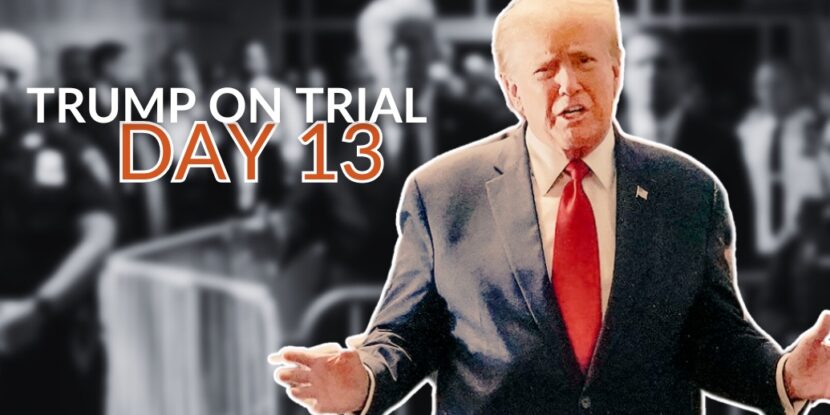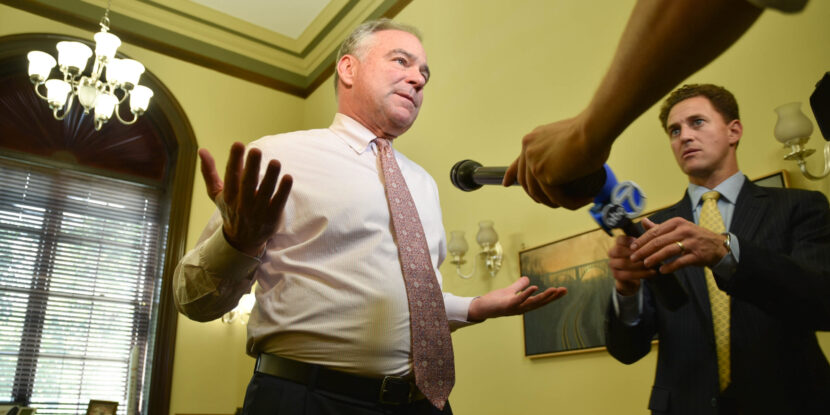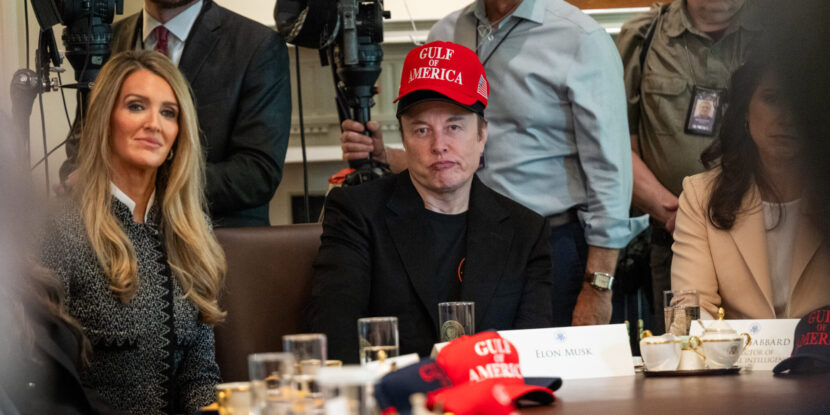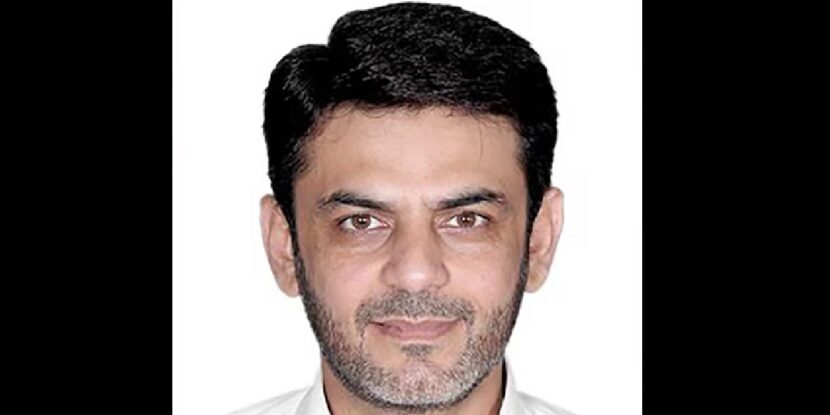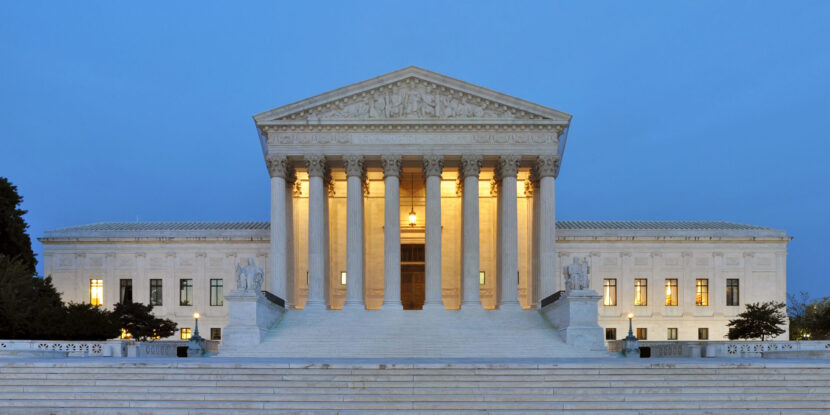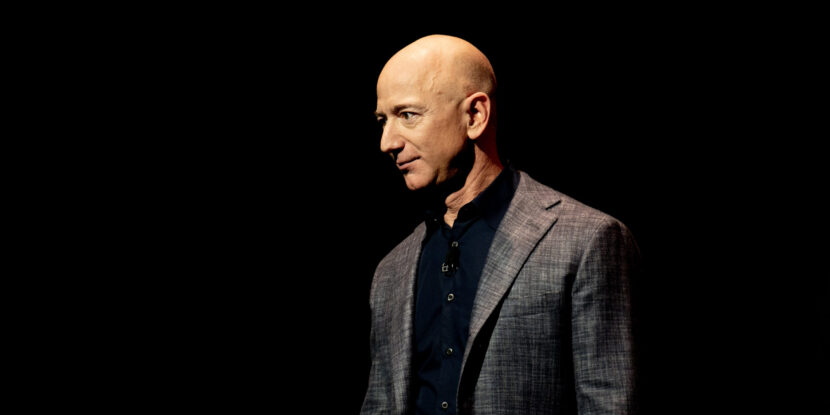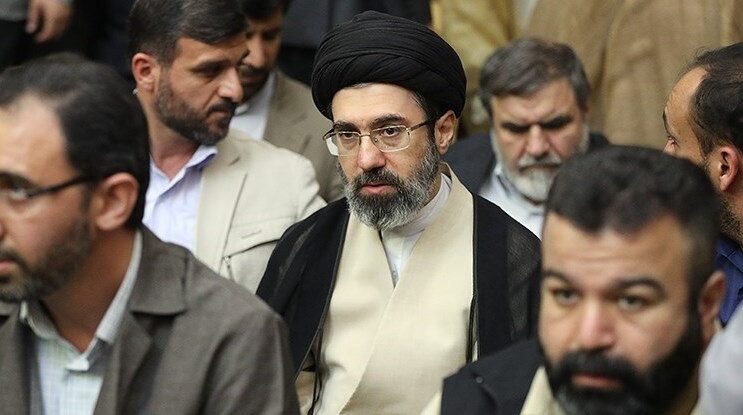The thirteenth day of former President Donald J. Trump‘s Manhattan-based hush money trial continued with the prosecution’s direct examination of their star witness, serial perjurer Michael Cohen. Much like Monday’s testimony, Cohen and prosecutor Susan Hoffinger spent much of the morning and early afternoon discussing invoices and verbal payment agreements that may or may not have only existed in Cohen‘s head. Todd Blanche handled Cohen’s cross-examination, with the two clashing from the start.
Also of note, court transcripts of a sidebar conversation between Trump‘s defense team, Judge Juan Merchan, and prosecutor Joshua Steinglass revealed that Michael Cohen is the last witness for the prosecution. Previously, District Attorney Alvin Bragg’s office had indicated they’d be bringing one additional witness after Cohen. With the prosecution’s case coming to a close, they have yet to detail what, if any, underlying crime former President Trump has committed.
The court won’t be in session Wednesday or Friday. Michael Cohen’s cross-examination will continue on Thursday.
A MATTER OF LOYALTY.
Starting the second day of direct examination by prosecutor Susan Hoffinger, Cohen claimed he had been Trump‘s personal counsel for “approximately 15 months.” When Hoffinger asked him why he lied for Trump, Cohen responded, “Out of loyalty and to protect him.” The disgraced attorney’s insistence on terms like “loyalty” and “respect” is likely why prosecutors focused so much with prior witnesses on Trump’s use of similar terms. Prosecutors had quotes using similar words from several books authored by Trump entered into the evidentiary record.
Much like Cohen‘s recollections of what Trump may or may not have said, his understanding of “loyalty” and “respect” isn’t derived from Trump but is his own. A secondary problem for the prosecution and Cohen’s discussion of “loyalty” is the fact that the disgraced attorney admitted to unethically recording a conversation with his client — over which he may have also perjured himself again.
COHEN ADMITS HE LIED TO CONGRESS.
As the morning wore on, Hoffinger — likely acknowledging her witness’s past inability to be truthful — asked Cohen to address his conviction for lying to Congress. The disgraced attorney explained the circumstances of his perjury charge and sentence. “They dealt with the Trump Tower Moscow real estate project, specifically the number of times that I claimed to have spoken to Mr. Trump about the project as well as the time period for those conversations,” Cohen testified.
Hoffinger next asked Cohen why he lied. “Because I was staying on Mr. Trump’s message that there was no Russia, Russia, Russia, and again in coordination with the joint defense team, that’s what was preferred,” he responded, appearing to mock a turn of phrase often used by Trump when the corporate media brings up the Russia Hoax.
THE TIMELINE STILL MAKES NO SENSE.
During yesterday’s testimony, The National Pulse highlighted an issue with Cohen and the District Attorney’s prosecutors’ timeline of alleged crimes. The alleged hush money repayments made to Cohen were all said to have occurred in 2017, well after the 2016 election, casting doubt on the prosecution’s assertion that the hush money payments were made to influence the election.
This morning, Cohen muddied the timeline even further, testifying that he continued to pressure individuals around both Stormy Daniels and Karen McDougal to lie about their alleged affairs with Trump well into 2018. When asked why he continued to work on the Daniels and McDougal stories, Cohen replied: “In order to protect Mr. Trump.”
If the primary concern was the impact the Daniels and McDougal stories could have on the 2016 presidential election, Cohen offered no reason to the court and jury for continuing to work as a ‘fixer‘ on the stories nearly two years later.
NOTHING COHEN SAYS CAN BE BELIEVED.
The disgraced and disbarred attorney spent much of the late morning describing a bevy of instances in which he claims he lied on behalf of former President Trump. District Attorney Alvin Bragg‘s prosecutors likely felt they had to go down this path as it would be exposed during Cohen’s cross-examination beginning in the afternoon.
However, Cohen‘s admissions of being untruthful to an almost pathological degree cast a shadow on the remainder of his direct examination. The one-time Trump associate claimed he spoke with the former President regarding the false statement he gave to the media about the hush money payment to Daniels. According to Cohen, he told Trump “that I had paid the money on his behalf without his knowledge because just because something isn’t true doesn’t mean it can’t hurt you and that I did it.”
Cohen then dubiously claimed Trump replied, “That’s good, good.”
STORMY DANIEL’S DENIAL.
In another moment, Cohen may have let slip that many of his actions were of his own accord. He testified that he was the one to inform former President Trump that Stormy Daniels would be issuing a statement denying the affair allegation. When asked by Hoffinger why he was the one who told Trump, Cohen responded, “One to get credit for expressing that I was continuing to ensure that he was protected and stayed loyal. And the other so we could have this matter taken care of.”
Cohen told Hoffinger that Stormy Daniels’s denial statement was false. When asked how he knew, Cohen responded it was because he had written the statement. Again, while his claim may appear damaging on the surface, it reinforces the contention that he is untrustworthy and lacks credibility.
The direct examination of Cohen did not improve from here in terms of bolstering his credibility. When the prosecution submitted his 2018 letter to the Federal Election Commission (FEC) regarding the Stormy Daniels payment, Cohen was asked why he had lied about the Trump Organization and campaign not having knowledge of the payment. Again, Cohen — without directly implicating Trump — said the letter was meant to be misleading “in order to protect Mr Trump, stay on message, demonstrate my continued loyalty.”
JUDGE MERCHAN’S INSTRUCTIONS.
At this point, Judge Juan Merchan stopped the direct examination to instruct the jury regarding Cohen’s FEC letter and statement. He told the jurors that Cohen’s statement was only admissible in the context of their assessment of the serial perjurer’s credibility as a witness. Merchan continued, instructing the jury that the fact that an FEC investigation into the Trump campaign occurred was not admissible and should have no bearing on their deliberations.
A little over an hour later, Judge Merchan issued a second set of jury instructions regarding Cohen having pleaded guilty to lying to Congress. Merchan said the guilty plea was not to have any bearing as evidence of Trump‘s guilt but could be used to assess Cohen’s credibility.
“Mr. Cohen’s plea is not evidence of the defendant’s guilt, and you may not consider it in determining whether the defendant is guilty or not guilty of the charged crimes,” Merchan said.
COHEN ‘STOPPED LYING IN 2018.’
The prosecution’s direct examination of Cohen wound down just before the court broke for lunch. Hoffinger walked Cohen through how he communicated with other business associates and confidants within the Trump orbit. In addition, the context and whether the recording Cohen had made of his conversation with Donald Trump regarding David Pecker and the McDougal payment was altered in any way was raised again.
“At any time, did you alter or modify the audio recording of your conversation with Mr. Trump as contained in PX246?” Hoffinger asked Cohen. He replied, “No, ma’am.”
The disgraced attorney told the jury that he hasn’t lied since 2018, suggesting that the several criminal cases against him and his subsequent three-year prison sentence caused him to have a moral revelation. “I regret doing things for him that I should not have — lying, bullying people in order to effectuate a goal. I don’t regret working with the Trump Organization,” Cohen said. Again, he stopped short of firmly stating he was ordered to do anything illegal. Instead, Cohen again focused on the need to “keep the loyalty.”
CROSS-EXAMINATION BEGINS.
Former President Trump‘s lead defense attorney, Todd Blanche, handled Michael Cohen‘s cross-examination and the long-expected fireworks kicking off immediately. “You went on TikTok and called me a crying little sh*t,” asked Blanche in an opening salvo. Cohen responded, “Sounds like something I would say.” As Cohen finished, prosecutors frantically objected to the question, which Judge Merchan sustained, striking the question and response from the record.
Blanche’s opening strategy appears to have been to paint Cohen as someone who runs their mouth and still demeans others, undermining his claims to have turned a new leaf.
Taking another shot at Cohen’s credibility and personal investment in the trial outcome, Blanche asked: “Is this trial important to you, Mr. Cohen?” The disgraced attorney answered: “Personally, yes.”
COHEN HAMMERED ON TIKTOK POSTS.
After lunch, Blanche spent a sustained period hammering Cohen on his social media posts throughout the trial. “You also talked on social media, during this trial, about President Trump, have you not?” Trump‘s attorney asked Cohen. The serial perjurer replied: “Sounds correct, yes.”
Addressing Michael Cohen’s TikTok video posts, Blanche asked him if he had referred to Trump as a “dictator douchebag.” Cohen again acknowledged that he likely had. “On that same TikTok on April 23, you referred to President Trump when he left the courtroom — you said that he goes right into that little cage, which is where he belongs in a f**king cage like an animal?” Blanche asked Cohen next.
“I recall saying that,” Cohen responded.
Blanche’s line of questioning served two purposes. One illustrates the extreme degree of hostility Cohen still holds for former President Trump, which could color his testimony as possibly false or biased. The other highlights Cohen’s hazy recollection of recent comments. During the prosecution’s direct examination, Cohen was able to recall — evidently in great detail — conversations between five and ten years old with former President Trump.
A HAZY MEMORY.
“Do you remember in February 2021, you were going on TV talking about the investigation?” Blanche asked Cohen, referring to the District Attorney investigation prior to Bragg’s indictment of Trump. Cohen could not give a concrete response, instead replying: “I go on TV often, so I’m not sure what the topic was.”
Blanche continued to press Cohen, asking him if he had often talked to the press about the investigation. Cohen, again, refused to give a firm answer, stating instead: “It sounds correct.”
The response prompted another terse exchange between Blanche and Cohen, with Trump‘s defense attorney firing back: “I don’t want it to sound correct. Is it correct?” Michael Cohen finally relented, responding, “Yes, it would be correct.”
Zeroing in on conversations Cohen had with his attorney, Lanny Davis, regarding media appearances, Blanche drew Cohen’s memory problems out into the open for the jury: “You testified yesterday about very specific recollections that you have about telephone conversations you had with President Trump in 2016 — but you have no recollection that last month just over a year ago that you promised the district attorney that you would stop going on TV?”
“What I was saying to you, sir, I don’t recall even having these conversations with Lanny Davis about not going on television,” Cohen replied before adding: “I recall the conversations with President Trump at the time, yes.”
COHEN MAKES MONEY OFF TRUMP.
Moving on, Blanche focused on Cohen’s financial motivations for attacking and ostensibly lying about former President Trump. He asked Cohen about his social media activity, specifically his TikTok videos. Cohen testified he spends about an hour on TikTok every night. When Blanche asked if he makes money off his social media posts, Cohen admitted he does but contended, “It’s not significant.”
Continuing the social media theme, Blanche asked Cohen if he uses TikTok to make money. The serial perjurer replied, “Money is made from it, yes.”
“That’s not my question. One of the reasons you do it is to make money, yes or no?” Blanche fired back.
“Yes,” is all Cohen said in response.
OBSESSION.
Cohen’s ‘obsession’ with Trump was the final theme of Blanche’s cross-examination before the court adjourned for the day. Blanche read a series of glowing statements about Trump that Cohen has made over the years. “At the time, you weren’t lying, right?” Trump’s defense attorney asked Cohen. “At that time, I was knee-deep into the cult of Donald Trump, yes,” Cohen responded, adding: “I was not lying, it’s how I felt.”
Blanche asked Cohen if he was obsessed with Donald Trump. “I wouldn’t say obsessed. I admired him tremendously,” Cohen replied. He continued: “I can’t recall using that word. I wouldn’t say it would be wrong.”
Pivoting into a darker form of obsession, Blanche confronted Cohen over claims he now wants to see Trump in prison: “Have you regularly commented on your podcasts that you want President Trump to be convicted in this case?”
“Yes, probably,” Cohen responded.
When pressed further on why he responded with “probably,” Cohen said: “Because I don’t specifically know if I used those words, but yes, I would like to see that.”
You can read The National Pulse’s Day Twelve trial coverage here, and if you find our work worthwhile, consider joining as a supporter.
